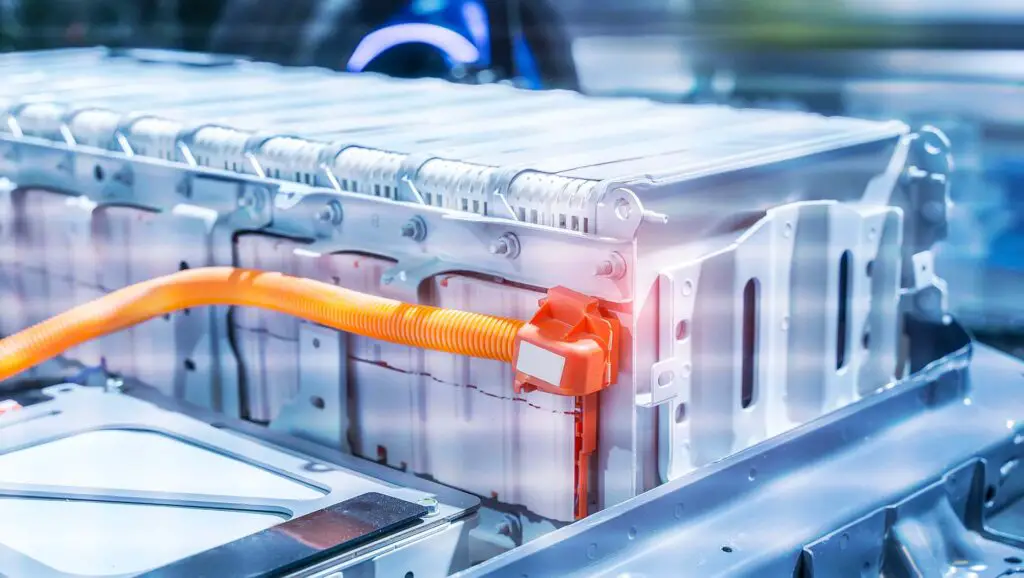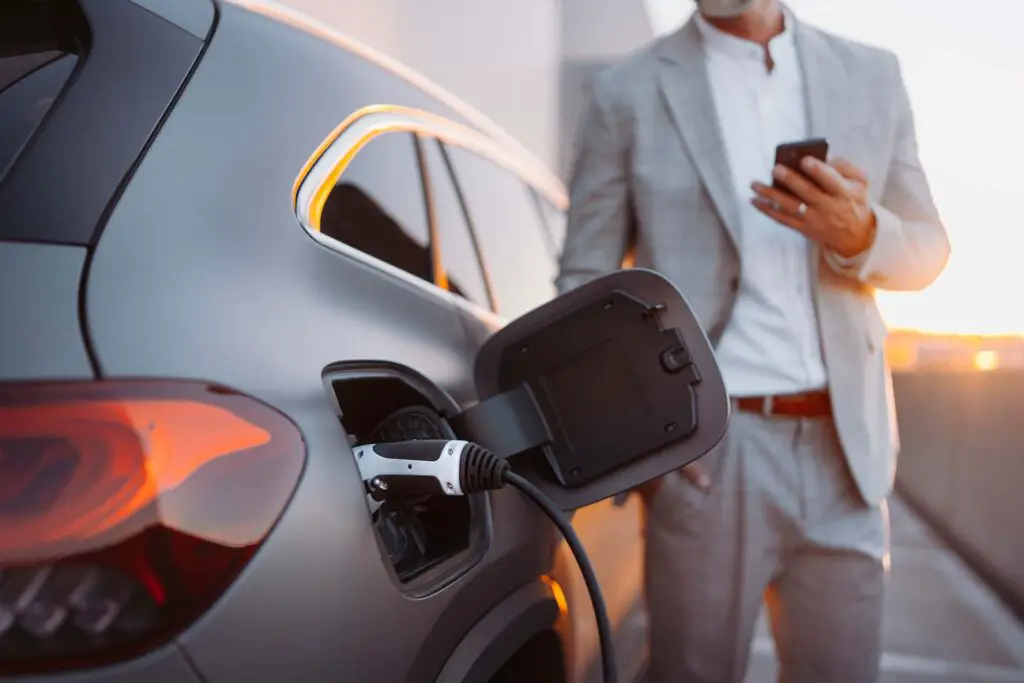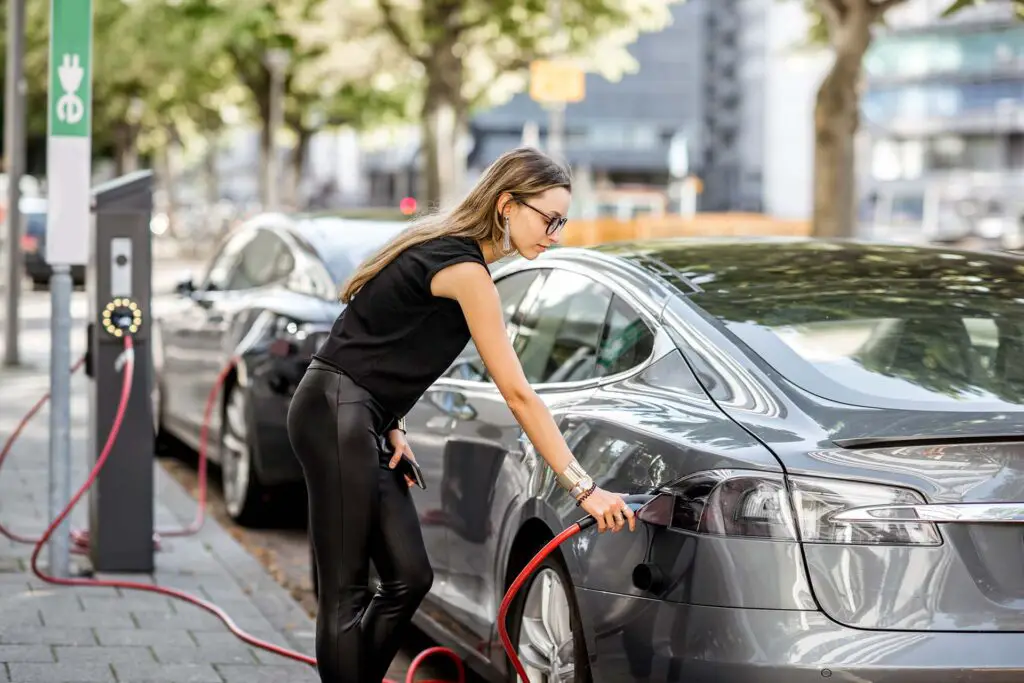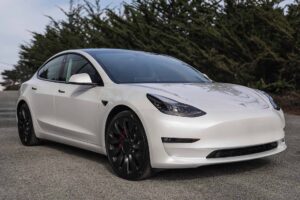In the bustling lanes of the automotive market, one question buzzes louder than a charging EV – why are electric cars so cheap? But it’s not just idle chatter. This trend reveals a complex story of technology, market dynamics, and buyer perceptions. As we peek under the hood, we’ll explore factors like swift depreciation, battery life myths, and economic incentives. Let’s take a ride through this electric avenue of the used car market.
Why Are Used Electric Cars So Cheap?
Like gas-powered vehicles, depreciation affects EVs too. Battery concerns and technology updates can also affect resale value. Government incentives can lower initial prices as well, but increased availability during recent years leads to competitive pricing in the used market. Therefore, a mix of factors – depreciation, tech evolution, incentives, and market dynamics – makes going green a budget-friendly choice in the second-hand market.

Let’s Start With the Basics of Electric Vehicle Depreciation
When you buy a new car, its value doesn’t just gently slide down a hill – unfortunately, it takes a nosedive the moment you drive off the lot. According to research, after that first year of vehicle ownership, it’s a steadier ride downhill, shedding about 15% with each passing year. By the time it’s been hanging out in your garage for five years, your four-wheeler isn’t just missing its new car scent. It’s also waving goodbye to about 60% of what you paid for it.
What Factors Influence EV Depreciation?
Both fuel-powered and electric vehicles can’t escape losing their value over time. Depreciation isn’t just about numbers, though. It’s about understanding the storyline behind those numbers. Several factors play the lead roles here:
- EV battery degradation – the battery doesn’t stay at 100% forever, and since replacing one isn’t cheap, this can accelerate an EV’s depreciation,
- Technology updates – in the world of accelerating vehicle evolution, what was cutting-edge yesterday might be old news tomorrow, so the values are pushed down quicker,
- Consumer perception – as these four-wheelers are still the new kids on the block, many buyers are cautious about stepping into the second-hand EV market, nudging their prices down.
EVs vs. Traditional Vehicles – How Do They Compare When It Comes to Depreciation?
The depreciation tug-of-war between EVs and their gas-powered cousins is a reflection of market maturity and consumer confidence. Traditional vehicles have been around the block. Their depreciation curve is well-charted territory, making them a predictable if not always thrilling, financial journey.
On the other side of the street, electric cars are shaking things up. They’re battling misconceptions about battery life and grappling with the fast pace of tech updates. As the public plugs into the benefits of going electric and technology stabilizes, we’re starting to see the gap in depreciation narrow. The future of electric cars is promising, with the potential for these green machines to hold their value more firmly as they become a mainstay on famous US routes.

The Battery Plays a Crucial Role in Electric Car Resale Value
The battery is the beating heart of an EV. It’s what gives it its zip and zest, propelling it silently down the road without a puff of exhaust in sight. But just like our own hearts, it needs a bit of TLC.
While it brings a basket of benefits, it also carries a backpack of concerns, especially when it’s time to hand over the keys to a new owner. Here’s a quick rundown of both sides of the coin:
| Lifespan | Lasts for years with proper care | Can minimize range over time |
| Maintenance | Minimal upkeep required | High cost of replacement |
| Performance | Immediate torque, smooth ride | Can diminish as the battery ages |
| Eco-Friendliness | Zero emissions, renewable energy | Recycling and disposal challenges |
| Cost Efficiency | Low running costs | High battery replacement cost |
How Much Does It Cost to Replace the Battery on an EV?
If your EV’s heart skips a beat and needs replacing, brace yourself. The bill can range anywhere from $5,000 to a whopping $20,000. This isn’t pocket change and battery replacement costs are integral to the resale value of an EV. It’s a crucial figure that both sellers and buyers need to plug into their calculations.

The Electric Vehicle Tax Incentives Also Affect Resale Value
When buying a shiny new EV, the price tag doesn’t tell the whole story. Governments are keen on cutting down carbon footprints, and they’re putting their money where their policy is in the form of tax incentives and rebates. These sweet deals can shave a significant chunk off the upfront cost, making that new set of electric wheels more wallet-friendly.
But here’s the plot twist – while these incentives make the new EV club more enticing, they also throw a curveball at the resale market. Sure, there might be incentives for buying used electric cars in some states. But most of the time, they don’t start their second-hand life on the same financial footing. This means you’ll be able to snag one for a fairly affordable price, but you won’t be able to enjoy the incentives that cut expenses down the road.

EV Technology Updates – How Do They Step Into the Picture?
Eco-friendly transportation has always been the poster child for cutting-edge technology in the auto world. EVs are like the smartphones of the industry, constantly updating and evolving. This relentless march of innovation is exciting, but it comes with a catch.
As newer, shinier models roll out with the latest tech toys and improved performance, the older models start to look a bit like yesterday’s news. This rapid pace can make an EV that’s just a few years old seem like it’s from a bygone era, and that perception plays a big role when it’s time for resale.
Consumer Attitudes Towards Older Electric Cars Can Significantly Affect the Resale Value
In the EV market, the race for the latest and greatest isn’t just a trend – it’s a tsunami. Be it the Tesla Model X or the Volkswagen ID.4, drivers are always on the hunt for the freshest tech, the longest range, and the swankiest features.
This tech-chasing mentality casts a shadow over the resale value of older models. Potential buyers might hesitate, worried that their new ride will soon be overshadowed by something better. This tech tug-of-war doesn’t just affect how fast an EV sells – it also affects how much cash changes hands when it does.

This Whole Electric Equation Always Comes Down to Supply and Demand
In the world of EV market value, there are undeniable physical factors at play, like battery life, that influence resale value. However, when we peel back the layers of this electric onion, we find that the biggest slice of the pie is all about supply and demand. It’s the classic economics lesson – when there’s a surplus of something, its value tends to dip, and when it’s in high demand, well, that’s when the prices start to soar.
The Increased Availability Is Changing the Rules of the Game
A few years ago, spotting a used electric vehicle on the market was like finding a four-leaf clover. They were rare, and their prices reflected it. Fast forward to today, and it’s a different story.
The EV landscape is shifting, with more and more used models hitting the streets. This increase in availability is flipping the script on resale values. With a growing selection to choose from, buyers have more bargaining power, and prices are feeling the pressure to stay competitive. It’s a clear case of supply and demand at work, and it’s reshaping the way we calculate the worth of a used EV.
What to Look for When Buying a Used Electric Car?
Getting into the world of affordable sustainable vehicles can be an electrifying experience, but it also requires a careful eye. To ensure you’re getting the most bang for your buck, here’s a checklist of things to keep in mind when you’re in the market for a pre-loved EV:
- Check the battery’s state of health and its remaining capacity,
- Check if the original manufacturer’s warranty on the battery is still valid, as it can provide peace of mind for years to come,
- While EVs have fewer moving parts, lower mileage is still a plus, as it suggests less wear and tear on the overall vehicle,
- Request a detailed service history to ensure the four-wheeler has been well-maintained, including routine battery checks,
- Also, make sure to get a vehicle history report to check for any accidents or damage,
- Evaluate the availability of charging stations in your area and along your regular routes,
- Confirm if the EV’s technology and software are up to date.
The Pros and Cons – Should You Invest in a Used Electric Car?
All in all, buying a used EV is a smart move for your wallet. They cost less upfront, thanks to government incentives and quick depreciation. Plus, they’re budget-friendly, with lower maintenance and no gas bills. And you’re doing Mother Earth a solid by driving green. Many older models still pack a punch in terms of performance and range, making them practical and eco-friendly choices.
But there are a few things to keep in mind. Battery health can be a concern as it degrades over time. Replacing it isn’t cheap. Charging infrastructure is expanding but can still be spotty in some areas. And while used EVs are a deal, they might not have the latest tech found in newer models. At the end of the day, it’s all about weighing these pros and cons to figure out if this is the right route for you.

Time to Decide – Charging Ahead or Pumping the Brakes on Used EVs?
The second-hand EV market is a terrain where technology dances with supply and demand and where savings and sustainability intersect. Deciding whether or not to go for it requires a dash of pragmatism and a pinch of green conscience. So, whether you’re revving up to go electric or still pondering your options, remember that the road to sustainability and savings is always paved with personal choices. Here’s to an electrifying journey ahead!








